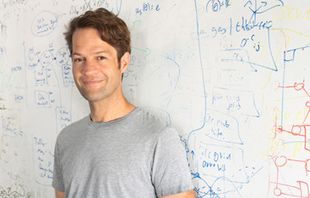The Academy of Sciences and Humanities in Hamburg is honouring Fabian Theis as a pioneer in the field of Artificial Intelligence in biomedical applications, above all in the area of single-cell biology.
As Director of the Institute of Computational Biology at Helmholtz Zentrum München and DZL Principal Investigator, Fabian Theis uses Artificial Intelligence (AI) and Big Data to answer biomedical questions. With his research, he has made an essential contribution to the development of innovative biomedical AI-based methods. Fabian Theis is a leader in his field not just in Germany, but worldwide. He is one of the few researchers whose discoveries have led directly to clinical applications.
As the Chair of the Jury and President of the Academy of Sciences and Humanities in Hamburg, Edwin J. Kreuzer comments: “With the Hamburg Science Prize 2021 we honour his pathbreaking work in the field of AI in biomedical applications, above all in the area of single-cell biology.”
Single Cell Analysis - First Symposium of the DZL Research Field in 2021
Within the DZL, Fabian Theis is also pushing the relatively young field of "Single Cell Analysis". At the DZL-wide symposium in May 2021, he demonstrated the possibilities of pooling and jointly analyzing single cell data from different studies or clinical cohorts in combination with demographic data. This allows researchers to distinguish between cellular changes in the lung occuring physiologically during as part of healthy aging process and pathological changes characterizing early or late stages of a particular disease.
Together with DZL-PI Herbert Schiller, he has analyzed the cellular processes in the aging lung in more detail - a project that aims at a complete mapping of lung cells within the framework of the "Human Cell Atlas". Read more about it here.
More Information:
The Hamburg Science Prize 2021 was dedicated to the topic “Artificial Intelligence in Medicine.” The prize is endowed by the Hamburgische Stiftung für Wissenschaften, Entwicklung und Kultur Helmut und Hannelore Greve.


